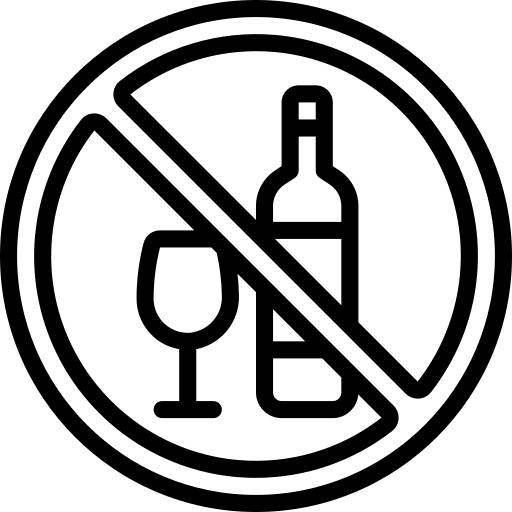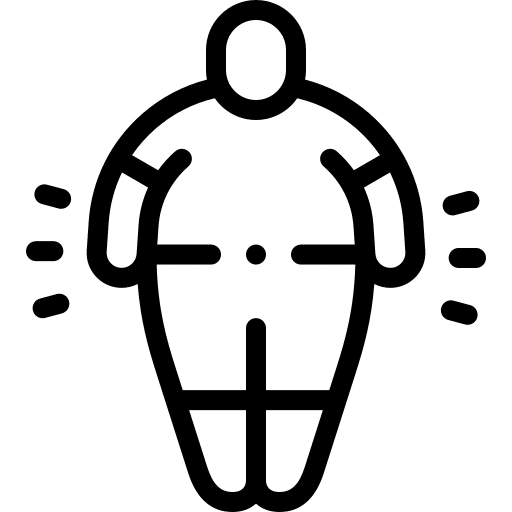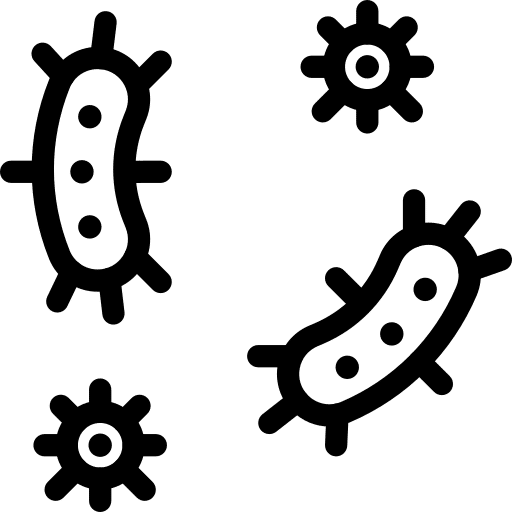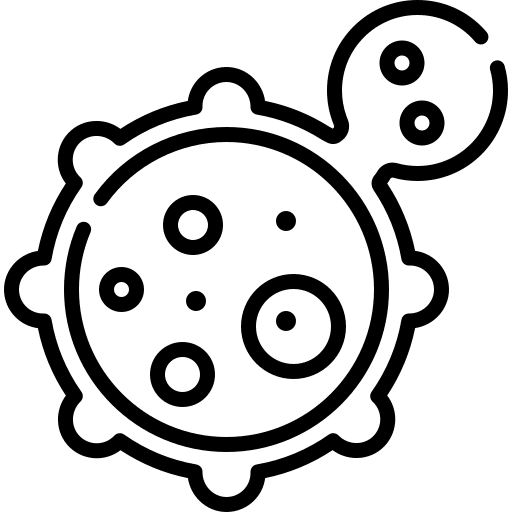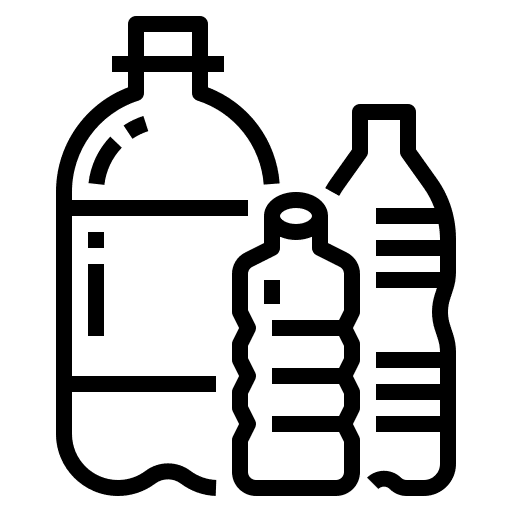
Low Testosterone Program
What is Testosterone?
Testosterone is a sex hormone made predominantly in the testicles that helps men develop sexually and physically.
Hormones are chemicals that carry messages in your bloodstream to the rest of your body.
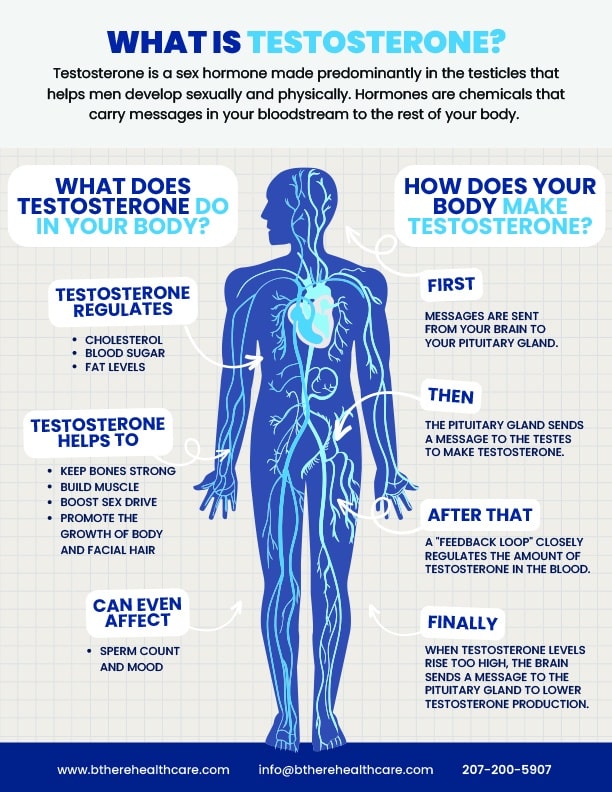
HOW TESTOSTERONE CHANGES?
What happens to your testosterone levels over time?
As men age, their testosterone levels naturally decrease. Peak testosterone levels happen during puberty. Typically, men over 30 experience a gradual decrease in testosterone levels, where testosterone production reduces by about 1% to 2% each year. In addition, age, lifestyle, environmental factors, and overall health contribute to the natural decline in testosterone levels.
Poor health or underlying medical conditions may contribute to testosterone levels decreasing. This includes things like:
Injury or infection of the testicles
Alcoholism
Obesity
Type 2 diabetes
Certain genetic and autoimmune conditions (e.g., Klinefelter Syndrome, lupus, rheumatoid arthritis)
Tumors of the pituitary gland or hypothalamus
Specific cancer treatments (e.g., chemotherapy, radiation)
Certain medications (e.g., opioids, prednisone)
Plastic-leaching PCBs (polychlorinated biphenyls)
Resemble estrogen (found in certain fish, dairy products, and animal fat)
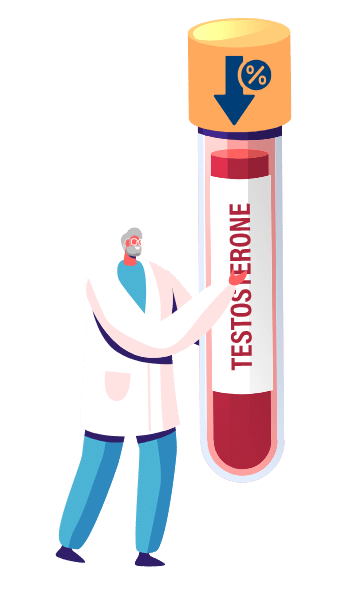
What is low T?
The American Urological Association (AUA) recommends that testosterone therapy is prescribed only to men who meet the clinical and laboratory definition of testosterone deficiency, which is a testosterone level of less than 300 ng/dL. If you feel fine, the low testosterone level itself is not a cause for concern. But the likelihood is that you'll experience symptoms of low T, which means it's time to call your healthcare provider.
WHAT ARE THE SYMPTOMS OF LOW TESTOSTERONE?
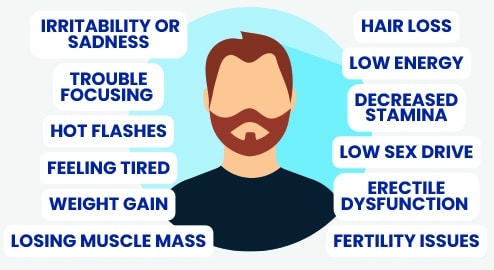
HOW CAN WE TEST FOR LOW TESTOSTERONE
It can be obtained by either a blood sample, saliva, or urine and may look at a few different markers in your blood to help determine the next steps for maintaining normal testosterone levels.
It's important to know that NOT all tests are created equal. Whereas a blood test is superior due to the ability to measure a total testosterone level, new technology and companies are developing better home kits to collect your sample in the comfort of your home.
You should fast for 10-12 hours before taking your test, and you must complete your test by 10 a.m. Testosterone levels peak in the early morning between 7 a.m. and 10 a.m. and steadily decline throughout the day.
TREATMENT OPTIONS
"Option A"
Testosterone Replacement Therapy (TRT)

Talk to our qualified providers to discuss options, If your lab results indicate that your testosterone is low, several traditional treatment options are available to help increase your testosterone level. This testosterone therapy is called testosterone replacement therapy (TRT).
Traditional TRT directly introduces additional testosterone into your system. Options include injections, gels, creams, troches, patches, pellets, and tablets.
Potential side effects of TRT may include:
- Oily skin or acne
- Headache
- High blood pressure
- Hair loss
- Worsening of sleep apnea (a sleeping condition where breathing stops and starts)
- May cause prostate gland enlargement (make it difficult to urinate)
- Gynecomastia (enlargement of a man's breast tissue)
- Increased cholesterol levels
- Increased blood sugar levels
- Blood clots
- Liver damage (prolonged-high-dose use)
"Option B"
Testosterone Boosting Therapy (TBT)
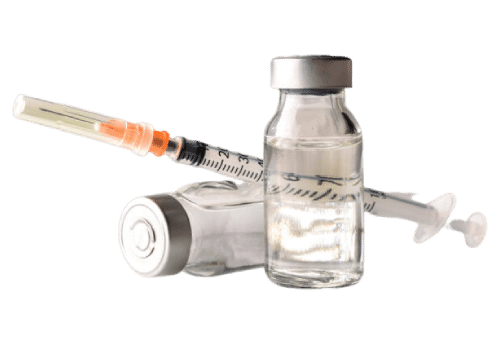
BThere provider favorite- It has shown to be more effective with a medication called enclomiphene, a non-steroidal estrogen receptor antagonist (estrogen blocker), that acts by increasing gonadotropin secretion and gonadal production of testosterone. Enclomiphene has the potential to help the reproductive status in men and improve metabolic profiles. It also has been shown to boost and increase your testosterone by 1.5 to 2.5x MORE than traditional testosterone replacement therapy.
Peptide therapy is another option approach is also available at BThere Healthcare. Peptides for testosterone are an amino acid sequence that can help naturally increase testosterone levels in the human body, which focuses on stimulating a controlled growth hormone (HGH) release, Luteinizing hormone (LH), and testosterone production to achieve optimal levels. Peptide therapy is a safe and natural alternative to traditional testosterone replacement therapy that aims to boost your testosterone levels with fewer potential side effects and a lower risk of complications.
Peptides improve muscle mass and athletic performance and have anti-aging and overall health benefits, making them a versatile and valuable addition to any wellness routine. Examples are: Sermorelin
** Please note that it's our provider's discretion to treat or not treat; sometimes, even if your testosterone levels are within normal limits, but you have clinical symptoms of low T, our providers may consider “boosting” your testosterone levels.
How often should you test your testosterone levels?
During traditional TRT or TBT therapy, you should test your testosterone levels at least every 90 days (or sooner if you continue to have symptoms of low T during TRT). If you're doing well and your provider agrees your levels are within reasonable ranges, you'll want to test every six months.
Get Started Today
Step 1
Choose the Low T BThere membership program in our app. (Traditional TRT starts at $150 per month; the price may vary with peptide therapy with 3 month commitment)
Step 2
Choose provider and payment method (financing available)
Step 3
Finish registration via medical questionnaire and consent.
Step 4
Order labs or ship a home kit to the patient’s house if qualify based on the program (3-5 days).
Step 5
Book consultation with our license provider (typically one week ahead after labs, then monthly or quarterly after levels are optimal).
Step 6
Delivered medications and supplements to your home after consultation for self-administration (initial 1-2 weeks after consultation, then monthly)


